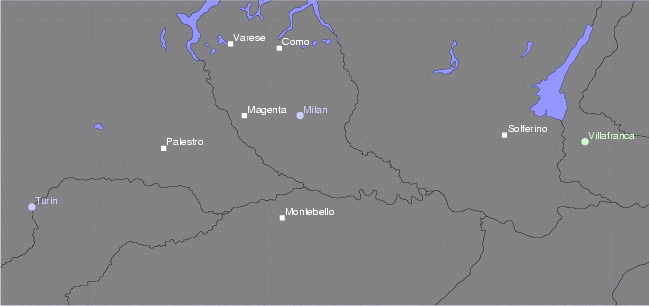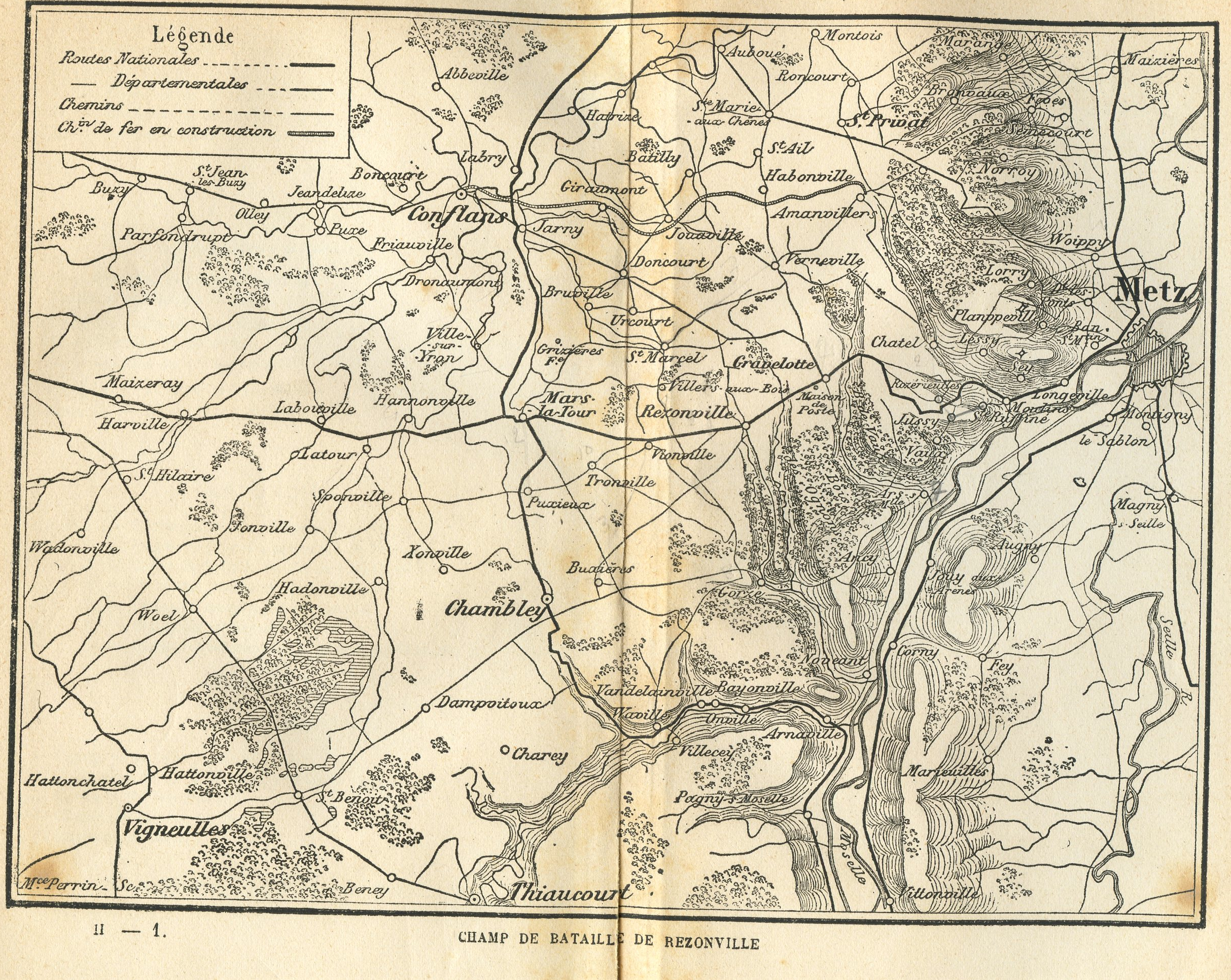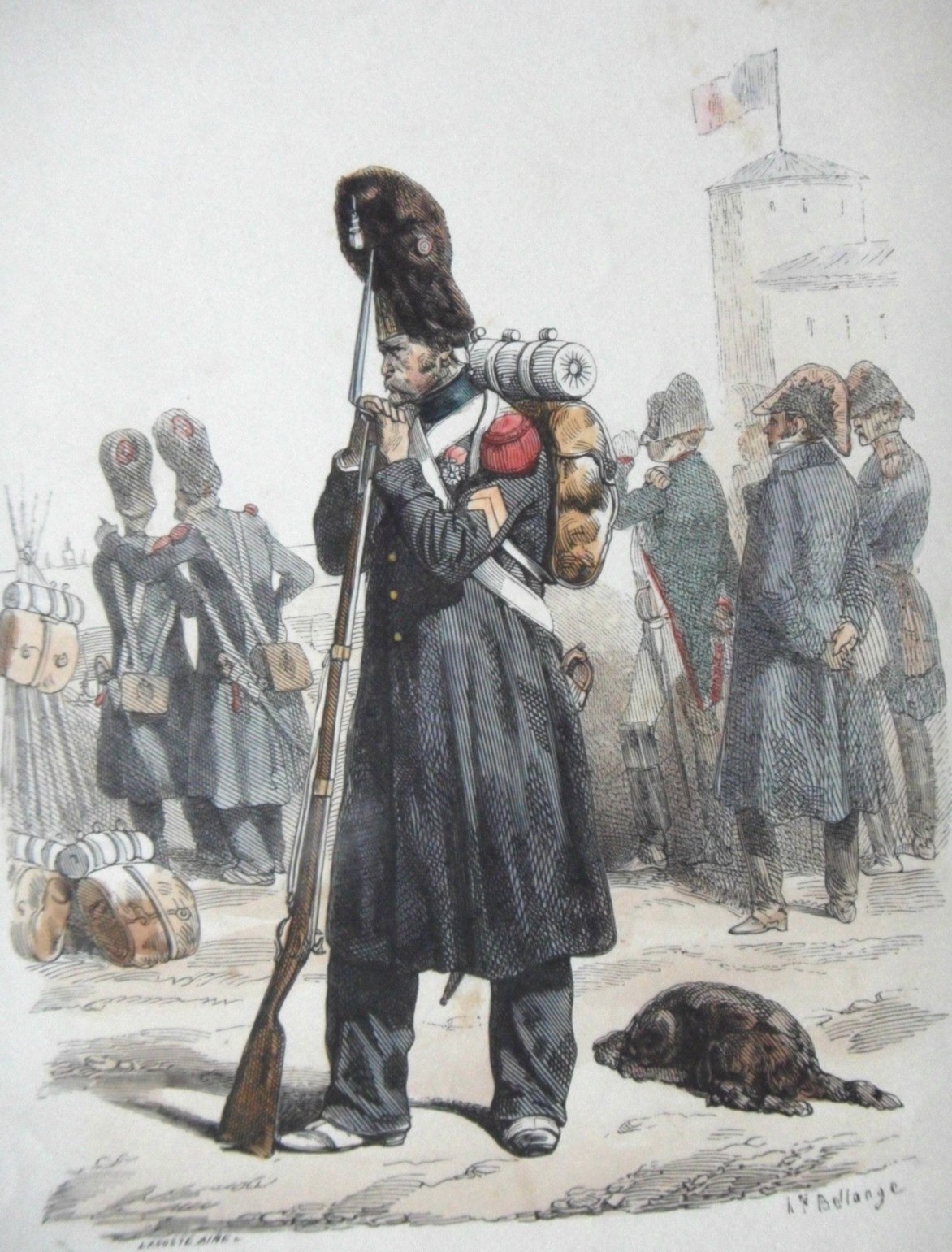|
Paul De Ladmirault
Paul de Ladmirault (17 February 1808, in Montmorillon – 1 February 1898, in Sillars) was a French general active in the French conquest of Algeria and during the wars of the Second French Empire. Life Ladmirault was born on 17 February 1808 at Montmorillon to an old family belonging to the Poitou minor aristocracy. His father had Émigré, fled France during the French Revolution. Ladmirault entered the prestigious École spéciale militaire de Saint-Cyr, Saint-Cyr Military School in 1826 (in the same class as the future Marshal of France François Certain Canrobert). Upon his graduation in 1829, he was commissioned a second lieutenant in the 62nd Line Infantry Regiment. In 1831 he was promoted to lieutenant in the 67th Regiment before being sent to Algeria, where he spent the next 22 years. He was promoted to the post of ''adjudant-major'' in 1834, then to captain in the Zouaves in 1837, and finally major in 1840. In the same year he was transferred to the 2nd Battalion of Li ... [...More Info...] [...Related Items...] OR: [Wikipedia] [Google] [Baidu] |
Paul Ladmirault
Paul Émile Ladmirault (8 December 1877 – 30 October 1944) was a French language, French composer and Music criticism, music critic whose music expressed his devotion to Brittany. Claude Debussy wrote that his work possessed a "fine dreamy musicality", commenting on its characteristically hesitant character by suggesting that it sounded as if it was "afraid of expressing itself too much". Florent Schmitt said of him: "Of all the musicians of his generation, he was perhaps the most talented, most original, but also the most modest". Peter Warlock dedicated his Capriol Suite to him and Swan Hennessy his Trio, Op. 54. Life Ladmirault was born in Nantes. A child prodigy, he learned piano, organ (music), organ and violin from an early age. At the age of eight, he composed a sonata for violin and piano. At the age of fifteen, when still a student of the Nantes Secondary school, High School, he wrote a three-act opera ''Gilles de Retz''. It was first performed on 18 May 1893. He was a ... [...More Info...] [...Related Items...] OR: [Wikipedia] [Google] [Baidu] |
Italian War (1859)
The Second Italian War of Independence, also called the Franco-Austrian War, the Austro-Sardinian War or Italian War of 1859 ( it, Seconda guerra d'indipendenza italiana; french: Campagne d'Italie), was fought by the Second French Empire and the House of Savoy, Savoyard Kingdom of Sardinia against the Austrian Empire in 1859 and played a crucial part in the process of Italian Unification. A year prior to the war, in the Plombières Agreement, France agreed to support Sardinia's efforts to expel Austria from Italy in return for territorial compensation in the form of the Duchy of Savoy and the County of Nice. The two states signed a military alliance in January 1859. Sardinia mobilised its army on 9 March 1859, and Austria mobilized on 9 April. On 23 April, Austria delivered an ultimatum to Sardinia demanding its demobilization. Upon Sardinia's refusal, the war began on 26 April. Austria invaded Sardinia three days later, and France declared war on Austria on 3 May. The Austri ... [...More Info...] [...Related Items...] OR: [Wikipedia] [Google] [Baidu] |
François Achille Bazaine
François Achille Bazaine (13 February 181123 September 1888) was an officer of the French army. Rising from the ranks, during four decades of distinguished service (including 35 years on campaign) under Louis-Philippe and then Napoleon III, he held every rank in the army from fusilier to Marshal of France, the latter in 1863. Early life François Achille Bazaine was born at Versailles, on 13 February 1811, from an affair prior to his father's marriage, with Marie-Madeleine, Josèphe dit Mélanie Vasseur. His father, was General Pierre-Dominique Bazaine, a polytechnic (promotion X1803), meritorious engineer of Napoleon I, and director of the Institute of Communications Channels of the Russian Empire. His elder brother Pierre-Dominique Bazaine was a renowned engineer. Achille Bazaine conducted studies at the Institute of Bader (or Barbet), then the college of Saint-Louis. French Foreign Legion & Algeria While not passing the academic entry test of the French Polytechni ... [...More Info...] [...Related Items...] OR: [Wikipedia] [Google] [Baidu] |
Amanvillers
Amanvillers (german: Amanweiler) is a commune in the Moselle department in Grand Est in northeastern France. Population See also * Communes of the Moselle department The following is a list of the 725 Communes of France, communes of the Moselle (department), Moselle Departments of France, department of France. The communes cooperate in the following Communes of France#Intercommunality, intercommunalities (as ... References External links Official site Communes of Moselle (department) {{Metz-geo-stub ... [...More Info...] [...Related Items...] OR: [Wikipedia] [Google] [Baidu] |
Battle Of Gravelotte
The Battle of Gravelotte (or Battle of Gravelotte–St. Privat) on 18 August 1870 was the largest battle of the Franco-Prussian War. Named after Gravelotte, a village in Lorraine, it was fought about west of Metz, where on the previous day, having intercepted the French army's retreat to the west at the Battle of Mars-la-Tour, the Prussians were now closing in to complete the destruction of the French forces. The combined German forces under King Wilhelm I were the Prussian First and Second Armies of the North German Confederation with 210 infantry battalions, 133 cavalry squadrons, and 732 heavy cannons totaling 188,332 officers and men. The French Army of the Rhine, commanded by Marshal François Achille Bazaine, dug in along high ground with their southern left flank at the town of Rozerieulles, and their northern right flank at St. Privat. On 18 August, the Prussian First Army under General Karl Friedrich von Steinmetz launched its VII and VIII Corps in repeated assaults a ... [...More Info...] [...Related Items...] OR: [Wikipedia] [Google] [Baidu] |
Battle Of Mars-la-Tour
The Battle of Mars-la-Tour (also known as the Battle of Vionville or Battle of Rezonville) was fought on 16 August 1870, during the Franco-Prussian War, near the village of Mars-La-Tour in northeast France. One Prussian corps, reinforced by two more later in the day, encountered the entire French Army of the Rhine in a meeting engagement and, surprisingly, forced the Army of the Rhine to retreat toward the fortress of Metz. A cavalry patrol of the 1st Squadron of the 1st Hanoverian Dragoon Regiment No. 9, led by Rittmeister Oskar von Blumenthal, discovered that Marshal François Bazaine's 160,000-man Army of the Rhine was attempting to escape from Metz to join with French forces at Verdun. This intelligence prompted General Prince Friedrich Karl, commander of the Prussian Second Army, to order at 1900 on 15 August a grossly outnumbered group of 30,000 men of the advanced III Corps under General Constantin von Alvensleben to cut off the French line of retreat at Mars-la-Tour ... [...More Info...] [...Related Items...] OR: [Wikipedia] [Google] [Baidu] |
Lille
Lille ( , ; nl, Rijsel ; pcd, Lile; vls, Rysel) is a city in the northern part of France, in French Flanders. On the river Deûle, near France's border with Belgium, it is the capital of the Hauts-de-France Regions of France, region, the Prefectures in France, prefecture of the Nord (French department), Nord Departments of France, department, and the main city of the Métropole Européenne de Lille, European Metropolis of Lille. The city of Lille proper had a population of 234,475 in 2019 within its small municipal territory of , but together with its French suburbs and exurbs the Lille metropolitan area (French part only), which extends over , had a population of 1,510,079 that same year (Jan. 2019 census), the fourth most populated in France after Paris, Lyon, and Marseille. The city of Lille and 94 suburban French municipalities have formed since 2015 the Métropole Européenne de Lille, European Metropolis of Lille, an Indirect election, indirectly elected Métropole, metr ... [...More Info...] [...Related Items...] OR: [Wikipedia] [Google] [Baidu] |
French Senate
The Senate (french: Sénat, ) is the upper house of the French Parliament, with the lower house being the National Assembly (France), National Assembly, the two houses constituting the legislature of France. The French Senate is made up of 348 senators (''sénateurs'' and ''sénatrices'') elected by part of the country's Territorial collectivity, local councillors (in indirect elections), as well as by representatives of French citizens living abroad. Senators have six-year terms, with half of the seats up for election every three years. The Senate enjoys less prominence than the first, or lower house, the National Assembly (France), National Assembly, which is elected on Direct election, direct universal ballot and upon the majority of which the Government of France, Government has to rely: in case of disagreement, the Assembly can in many cases have the last word, although the Senate keeps a role in some key procedures, such as Constitution of France, constitutional amendmen ... [...More Info...] [...Related Items...] OR: [Wikipedia] [Google] [Baidu] |
French Algeria
French Algeria (french: Alger to 1839, then afterwards; unofficially , ar, الجزائر المستعمرة), also known as Colonial Algeria, was the period of French colonisation of Algeria. French rule in the region began in 1830 with the invasion of Algiers and lasted until the end of the Algerian War of Independence in 1962. While the administration of Algeria changed significantly over the 132 years of French rule, the Mediterranean coastal region of Algeria, housing the vast majority of its population, was an integral part of France from 1848 until its independence. As one of France's longest-held overseas territories, Algeria became a destination for hundreds of thousands of European immigrants known as ''colons'', and later as . However, the indigenous Muslim population remained the majority of the territory's population throughout its history. Many estimates indicates that the native Algerian population fell by one-third in the years between the French invasion a ... [...More Info...] [...Related Items...] OR: [Wikipedia] [Google] [Baidu] |
French Imperial Guard
The Imperial Guard (French: ''Garde Impériale'') was originally a small group of elite soldiers of the French Army under the direct command of Napoleon I, but grew considerably over time. It acted as his bodyguard and tactical reserve, and he was careful of its use in battle. The Guard was divided into the staff, infantry, cavalry, and artillery regiments, as well as battalions of sappers and marines. The guard itself as a whole distinguished between the experienced veterans and less experienced members by being separated into three sections: the Old Guard, Middle Guard and Young Guard. History The Guard had its origin in the Consular Guard (''Garde des consuls''), created November 28, 1799, by the union of the Guard of the Directory (''Garde du Directoire exécutif'') and the Grenadiers of the Legislature (''Grenadiers près de la Représentation nationale''). These formations had for principal purpose the security of the executive and legislative branches of the French R ... [...More Info...] [...Related Items...] OR: [Wikipedia] [Google] [Baidu] |








